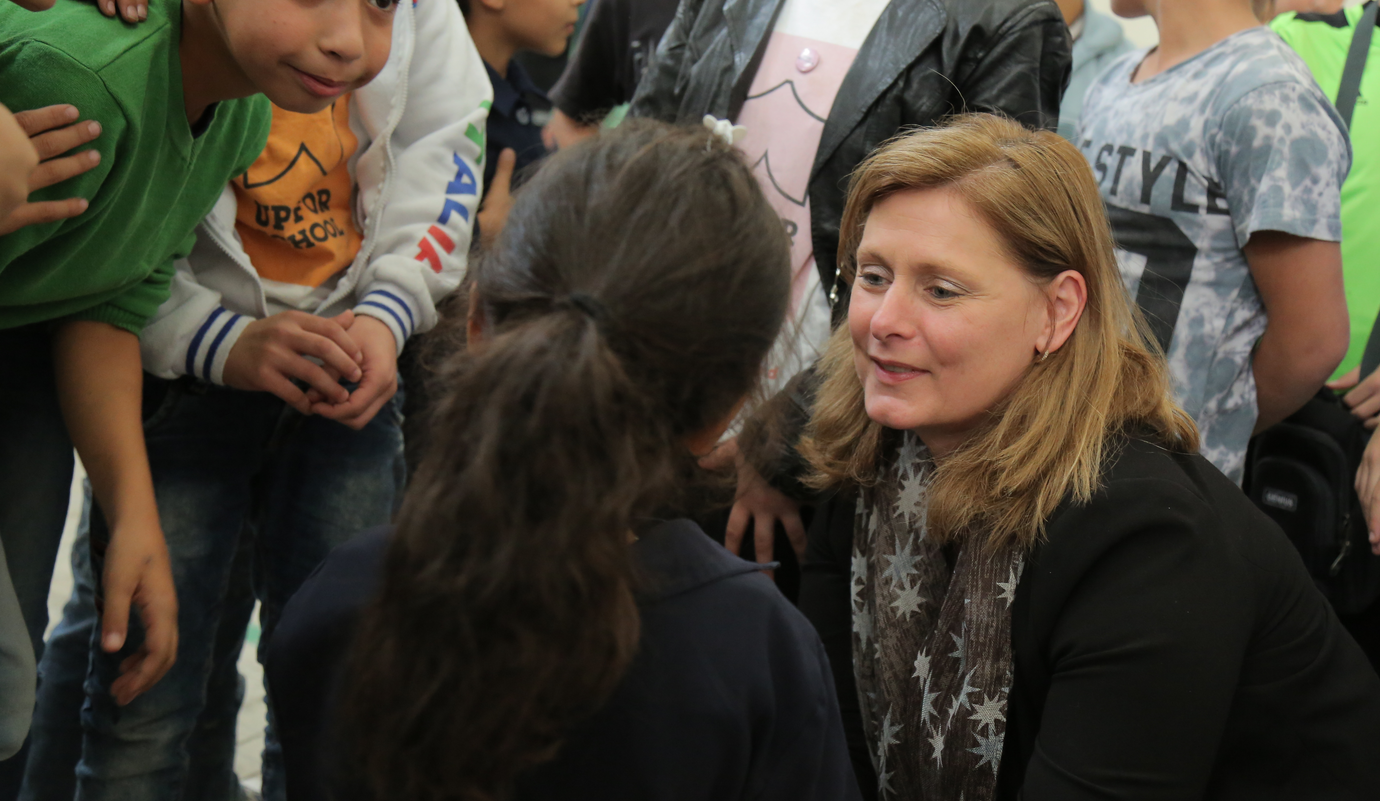
Why this week could be a turning point for millions of children
Education funding
Kolleen Bouchane is Director of Policy and Advocacy for A World at School. She is in Brussels, Belgium, for a vital event for global education.
It’s a big week for education as more than 600 delegates from developing countries, donor governments, international organisations, the private sector, teachers, and civil society organisations descend on Brussels for the Global Partnership for Education’s Second Replenishment Pledging Conference.
This large education moment has as its backdrop continued frustration with the failure to bring back the girls of Chibok, a steady rise in attacks on education around the world and a rapid decrease in donor investments in education in some of the poorest parts of the world.
Investments in global education have also been falling rapidly – by more than 10% between 2010 and 2012 – more than $1.3billion.
It’s desperate times for the 57million children around the world still not in school and the more than 250,000 million still not learning the skills they need to build healthy futures.
What can we hope to achieve this week?
Countries with high burdens of out-of-school children are expected to come to the table to articulate to the global community what they are doing on behalf of their own children.
Several countries have worked hard to gradually scale up to spending the recommended 20% of their budget on education and have had dramatic success following the elimination of school fees, training of more teachers and other proven strategies.
A student in the Democratic Republic of Congo Picture: GPE
Expectations are high that these countries and others will come forward to highlight the commitments and investments they will make over the next three years.
Steady scaling up of resources and commitments should continue or begin immediately for those who are behind and these resources should be targeted in particular at eliminating disparities in access related to region, gender, disability and poverty.
Without this, research shows the last poor out-of-school girl will complete her primary education in 2086.
As for donor countries, the trend in stepping back from education is worrying and several countries have not given positive signals about their commitment to success this week.
Despite the fact that a child born to a mother who can read is 50% more likely to survive to their fifth birthday and that if all women in sub-Saharan Africa completed their primary education, maternal mortality would fall by 70% – most donors, despite the critical benefits of education to their scaled-up health investments, are not prioritising education in any meaningful way.
In particular, the investments needed to address the complex problem of education in emergencies (which affects more than half of out of school children) is scarce.
This week could be a turning point. We have the opportunity to make an initial recommitment to at least what we will need to get started to finish the job for the 57million children still out of school.
“If there is ever a time for all of us to act, to boost the momentum and urgency for providing education for millions of children, now is the time,” said Julia Gillard, former Prime Minister of Australia and board chair of the Global Partnership for Education.
Stay tuned for more updates from Brussels – and work with A World at School over the next 500 days as we count down to 2015 and work across the world to finish the job for all children.
Also read Kolleen’s Huffington Post Impact piece “Bring Back Our Girls and Fund Education Now.”
More news

